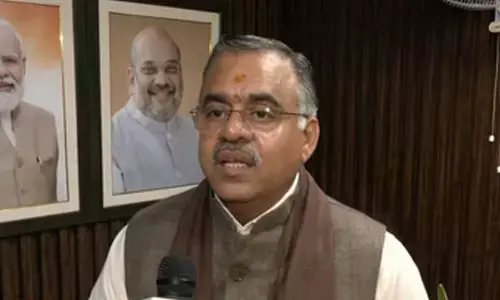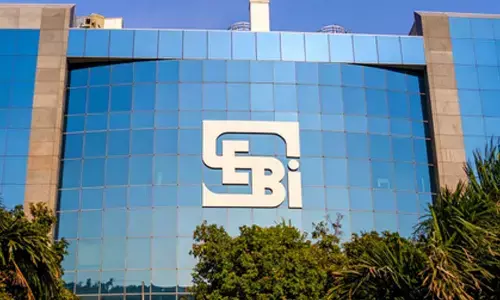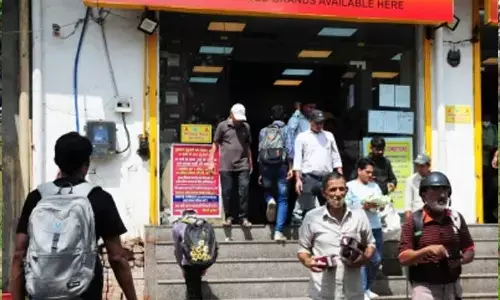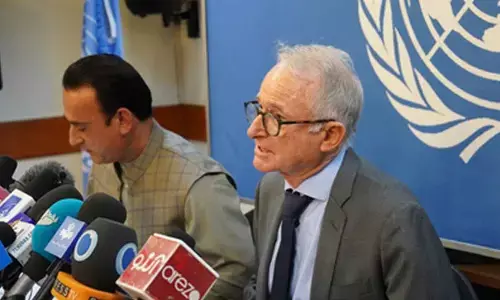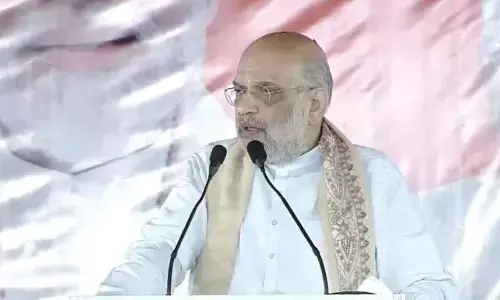Common man’s ‘Man Ki Baat’ should be Modi ji’s 3.0 agenda
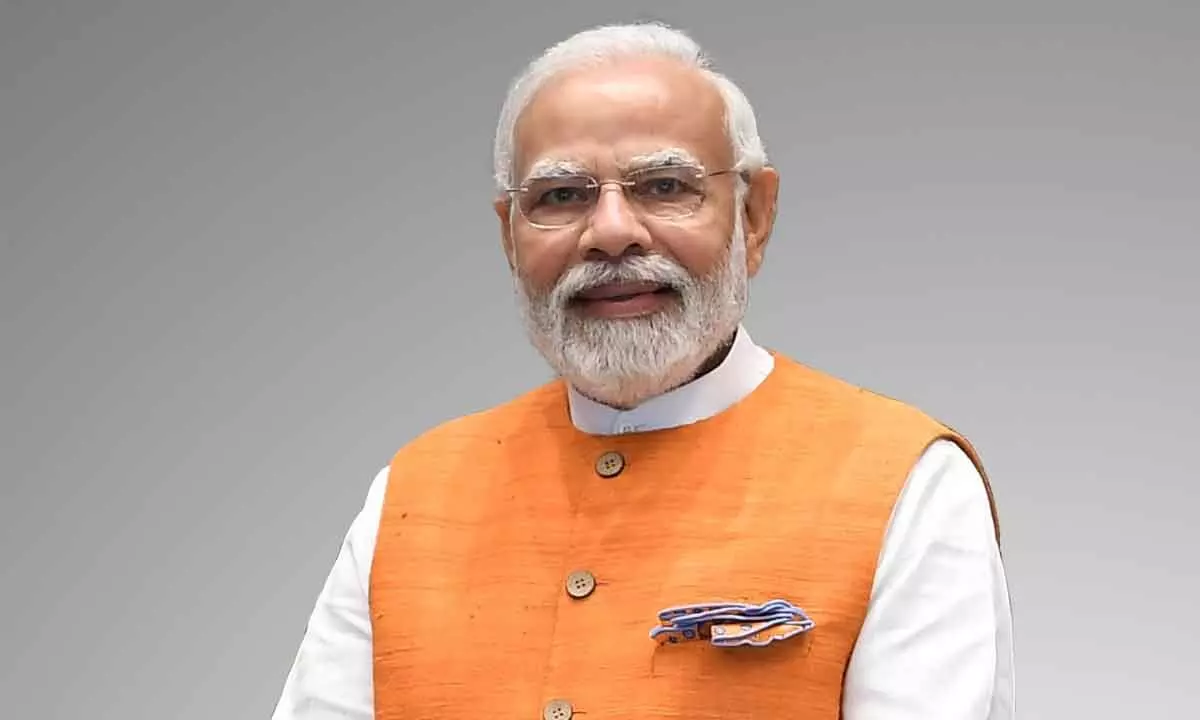
The Modi 3.0 narrative along with the vision of PM should also include the wish list of the common man. Will the PM listen to the ‘Man Ki Baat’ of the ordinary people? They want easing of inflation, clampdown on corruption at all levels of administration and in all states. A hassle-free health insurance system has for long been one of their main grievances. Will he ensure electoral reforms where the power of money is curbed? Will the Modi government carry along the State governments, especially of the opposition parties? As Viksit Bharat is the main motto of ‘Modi Ki Guarantee,’ it raises aspirations of the common man, which increase his responsibility manifold. Modi has his task cut out and it is a huge one
“The third term of our government is not far away. Some people call it Modi 3.0. Modi 3.0 will put all its might to strengthen the foundation of Viksit Bharat (developed India),” Prime Minister Narendra Modi said, while speaking in Rajya Sabha during his reply to the debate on the motion of thanks to the President’s address.
Modi said that the last 10 years of the National Democratic Alliance (NDA) government would be remembered for “big and decisive” moves, and added that the nation’s policies were geared towards ensuring basic facilities for all and raising the standards of living. “In the coming days, our focus will be going beyond ease of living to improving quality of life… my resolve to provide new opportunities to the neo-middle class that has just come out of poverty. We will provide more strength to the Modi kavach (shield) of social justice,” he said.
Modi said the free ration scheme, Ayushman Bharat scheme, 80% discounts on medicines, PM Kisan Samman Nidhi that pays cash to farmers, pucca houses for the poor, tapped water connections and construction of new toilets would continue at a fast pace. He said medical infrastructure would be augmented, and medical treatment would become more affordable. Every house would have piped water, saturation of the PM housing scheme would be achieved, electricity bills would become zero for millions of houses due to use of solar power, and piped cooking gas connections would cover the entire country, he assured.
Modi said his first two terms focused on grappling with the problems left by the Congress which, he alleged, knew of the “disease” but did nothing to cure it. “Viksit Bharat is not a word play, but it is our commitment. The country will not listen to those whose warranty has expired. The one who has shown the power of guarantee will be trusted by the nation,” he stressed.
Making great strides in space exploration, scientific research and creating employment opportunities, direct and indirect, in various sectors including tourism sector, scientific research and patent filing would break records. “In the next five years, the world will witness the capabilities of Indian youth in every international sporting competition,” he added.
Another area which he feels would help in his vision of making India ‘Atmanirbhar Bharat’ (Self-Reliant India) could be in the field of semiconductors and electronics and working towards reducing energy dependence on other countries. He also feels that India would see more startups, 1,00,000 unicorns, best universities, transformation in public transportation, and bullet trains. Another area would be using AI in all fields. He made a new experiment in this direction on Friday when he addressed the students of Kashi Vidyapeeth. A word spinner, Modi told them many people want to take a selfie with him but he wants to take a photo with all the students. He said he would go from block to block where the students are sitting and the photographers would shoot him along with the students. But then the question is how the students will get the photos. He said these photos would be uploaded in an app and the students can download the app and take their selfies and upload it and with the help of AI, they can see themselves along with Modi.
During Modi 3.0, the PM feels that nano-fertilisers, green technologies, natural farming and super food would get prominence. “3 crore lakhpati didis will write a new script of women empowerment. By 2047, India will relive its golden period.”
A large chunk of the speech was mainly to mock the opposition Congress. In his own inimitable style, Modi mocked at the AICC president Mallikarjun Kharge, saying that the Opposition place was reserved for the Congress as there was public anger against the party because of its deeds.
He would be continuing this narrative during the campaign for Lok Sabha once BJP announces the list of candidates. He would repeatedly invoke that various schemes and developing India were “Modi Ki Guarantee”, a promise linked to the PM that reaped handsome dividends in the recent assembly polls in three heartland states.
‘Modi Ki Guarantee’ is fine. But what about the aspirations of the people? He has listed out what he wants to do. But, what about the goals that the people, especially the common man, want him to achieve? The question is whether Modi during his third successive term would embark on bold and path-breaking economic reforms. Will the new regime be able to navigate the complexities of pending reforms which require widespread consensus? Will the Modi government pull through radical overhaul of food, fertilisers and petroleum subsidies? Will his government address the issue of direct tax reforms when the new Finance Minister presents a full budget? This reform is more pertinent as it could result in increase in revenue without increase in rates and would reduce litigation. Financial experts say this is a big-ticket reform idea. Another area is GST. Experts opine that at some point, the GST Council will have to look at harmonising and streamlining rates and bringing in more products under the GST. There should be no increase in the average GST rates but at the same time the loopholes in the enforcement of GST need to be plugged to improve administrative efficiency.
The new government should also work to come up with a consensus on simplified GST rates. Many state governments and political parties have been advocating a three rate system, merit, general and demerit. Financial wizards say that if there is a mechanism to make MNCs pay minimum tax on their operations, it would solve the menace of corporates opening shell companies in countries which fall under low tax jurisdiction.
While outlining a plethora of potential reforms and add-ons, Bibek Debroy, the Chairman of the Economic Advisory Council to Prime Minister, said that the focus would likely be on refining and improving existing reforms. “There was continuity between Modi 1.0 and Modi 2.0. In a similar vein, there will be continuity between Modi 2.0 and Modi 3.0. No reforms will be a break from the past. Instead, there will be tweaking and improve... and improvements on what is already being done.”
But then what is equally important is to equally focus on what the state governments should do to see that they also get into fast- track mode, cutting across political differences. Modi 3.0 should also take measures to allay apprehensions that it is using probe agencies against non-friendly governments. Of course, such allegations were made by BJP and other opposition parties when the Congress-led UPA was in power and even before that when Indira Gandhi was the PM.
When Modi says that they had proved to be different than the previous governments, it should prove that it is different and does not indulge in arm-twisting of opponents. Modi claims that in last 10 years, he had given corruption-free government. Fine, his government may not be corrupt, but this the common man should feel at all levels and in all states and at all levels of administration. Can Modi 3.0 achieve this? This is what the common man wants. The common man also wants reduction of prices, which continues to remain a mirage. Can Modi 3.0 do it? The common man needs hassle-free health insurance system. Can Modi 3.0 promise this? People also want drastic electoral reforms where the role of money is reduced? Is Modi 3.0 ready for it?
The Modi 3.0 narrative along with the vision of PM should also include the wish list of the common man. Will PM listen to the ‘Man Ki Baat’ of the people?


